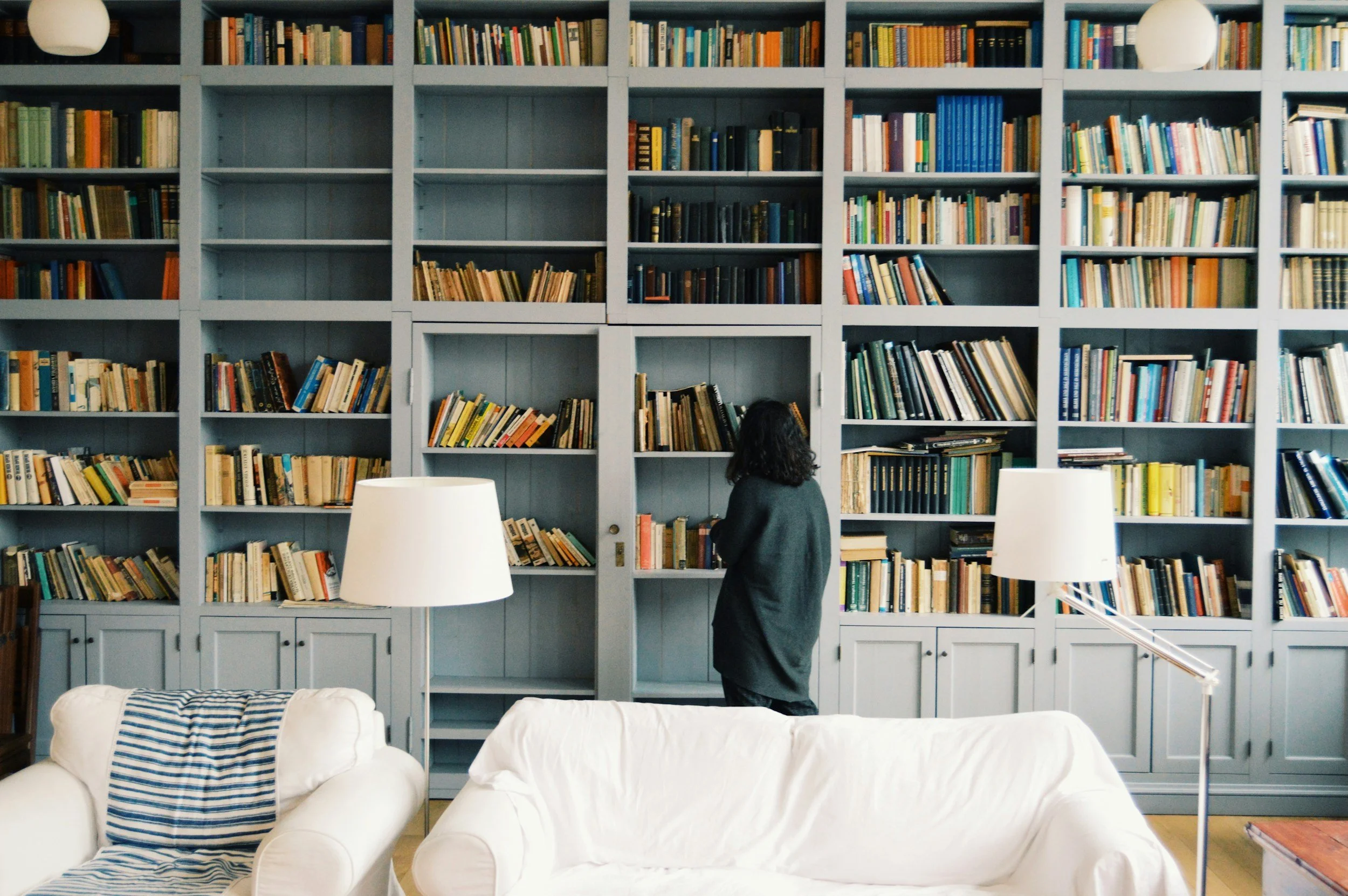DIY: Building Your Own Built-ins!
You can do it! Check out my Pinterest Board for inspo
Are you dreaming of custom built-ins but daunted by the cost of hiring a contractor? Good news—you can build your own! Whether you're looking to transform your living room with built-in bookshelves or add functional storage to a bedroom, creating built-ins can be an affordable and rewarding DIY project. This guide will walk you through two main options: using pre-built cabinets or constructing your own from scratch. Both approaches will give you that polished, custom look at a fraction of the price.
Why Built-ins?
Built-ins instantly elevate a room, adding architectural interest, storage, and functionality. Plus, they can increase your home’s value. Built-in cabinetry around a fireplace, for instance, is a favorite among homebuyers. Let’s dive into the two ways to tackle this project—**using pre-built cabinets** or **building from scratch**—and outline the tools, materials, and costs involved.
Option 1: Pre-Built Cabinets with Custom Trim
This is the easier, faster option. You start with store-bought cabinets (like those from IKEA, Home Depot, or Lowe’s) and customize them with trim, molding, and paint to create the look of built-ins.
Materials:
Pre-built base cabinets (around $100–$250 each depending on style and size)
MDF (Medium Density Fiberboard) or plywood for shelving and paneling
Crown molding, baseboard, or other decorative trim
Wood filler and caulk
Primer and paint
Tools:
Measuring tape
Circular saw (or miter saw for precise cuts)
Level
Drill and screws
Stud finder
Nail gun (optional but helpful)
Sandpaper
Steps:
1. Measure Your Space: Start by measuring the width, height, and depth of the area where you want to install the built-ins. Be sure to account for any irregularities in your wall or floor.
2. Install Cabinets: Place the pre-built cabinets where you want the base of your built-ins. Secure them to the wall studs using screws, ensuring they are level. If needed, adjust the cabinets using shims.
3. Add Shelving: Measure and cut MDF or plywood to build custom shelves above the cabinets. Attach them to the wall using L-brackets or a cleat system for extra support.
4. Finish with Trim: Once everything is in place, attach crown molding or baseboard around the edges of your built-in to give it a seamless look. You can also add decorative trim along the shelves or around the cabinet doors for a more custom feel.
5. Fill and Paint: Fill in any gaps or nail holes with wood filler. Sand everything down and apply primer before finishing with paint. Use caulk around the edges for a polished look.
Cost Estimate:
Pre-built cabinets: $100–$250 per cabinet
MDF/plywood for shelves: $50–$100
Trim and molding: $30–$100
Paint: $30–$50
Total Cost: $300–$800 depending on materials and size of the project.
Option 2: Building from Scratch
If you’re up for a more hands-on challenge, you can create completely custom built-ins from inexpensive lumber, like pine or MDF. This route requires more tools and skill but gives you complete control over the design and layout.
Materials:
2x4 or 2x6 pine boards for the frame
MDF or plywood for shelving and paneling
Pocket hole screws and wood glue
Decorative molding or trim (optional)
Paint or wood stain
Tools:
Circular saw or table saw
Power drill and screws
Pocket hole jig (for stronger joints)
Level and measuring tape
Nail gun (optional but speeds up the process)
Clamps for gluing
Sandpaper
Steps:
1. Design Your Built-in: Sketch out the dimensions and design for your built-ins. Decide where the shelves will go, how tall the unit will be, and how wide. This is the perfect opportunity to get creative!
2. Build the Frame: Start by constructing the frame of the built-in using 2x4s or 2x6s. Attach the frame to the wall studs using pocket hole screws for a sturdy foundation. Ensure everything is level.
3. Cut and Attach Shelves: Use MDF or plywood for the shelves and cut them to your desired size. Secure the shelves to the frame using pocket screws or wood glue and clamps.
4. Add Trim: If you want a more polished look, attach decorative molding or trim to the edges of your built-ins. This step really elevates the aesthetic, making your DIY project look professionally installed.
5. Finish and Paint: Sand everything smooth, then apply primer and paint. You can also stain the wood if you prefer a natural wood finish.
Cost Estimate:
Lumber (2x4s, MDF/plywood): $100–$300
Screws, wood glue, and pocket hole jig: $50–$100
Trim and molding: $30–$100
Paint or stain: $30–$50
Total Cost: $250–$600 depending on materials and size.
Tips for Success:
Measure Twice, Cut Once: It’s always better to double-check your measurements before making any cuts to avoid wasting materials.
Paint in Advance: Painting your shelves or cabinets before installation can save you time and ensure a cleaner finish.
Use a Stud Finder: Anchoring your built-ins to wall studs will make them more stable, especially if they’ll be holding heavy items like books or electronics.
Consider Electrical Outlets: If your built-ins are going in a living room or office, think about how you’ll manage outlets for lamps, chargers, or electronics.
Why Built-Ins Add Value
Custom built-ins don’t just make your space more functional—they can also significantly increase the value of your home. In fact, well-done built-ins can offer **an ROI of up to 70%** depending on the quality of materials and the skill of the installation. Not to mention, they create a unique selling point if you ever decide to put your home on the market.
So, if you’ve been thinking about adding custom storage or a stylish touch to your space, building your own built-ins could be the perfect weekend project! Whether you choose the pre-built cabinet route or build from scratch, you’re sure to create a feature that’s as functional as it is beautiful.
Happy building!


